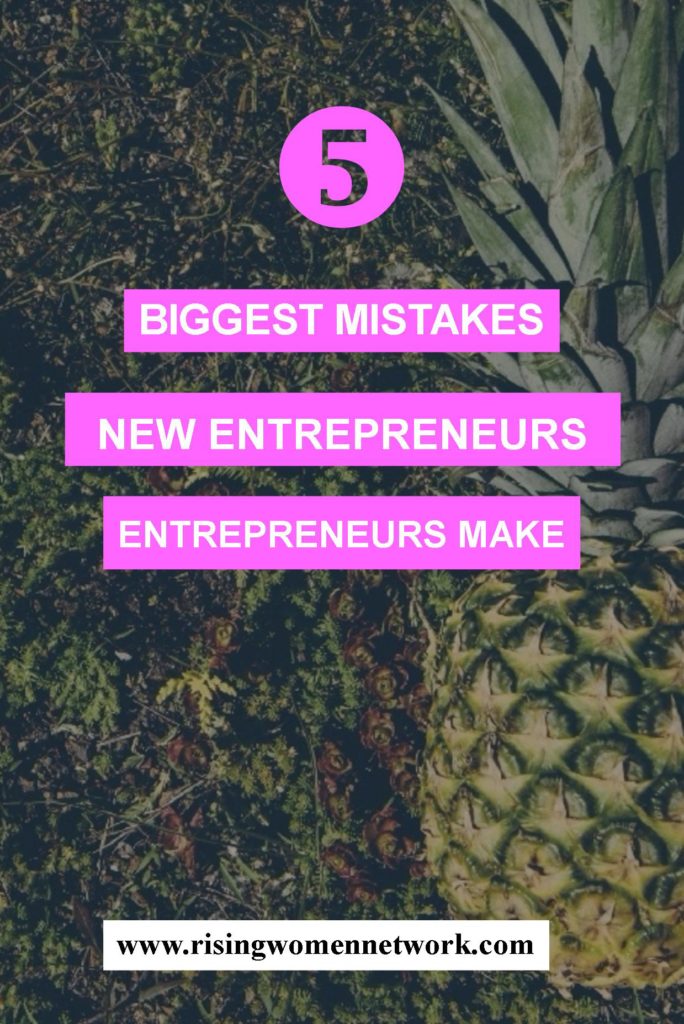Building a new company from the ground up is no easy task. And according to history, the odds are stacked against you.
Research from the National Venture Capital Association estimates that 25 to 30 percent of venture-backed businesses fail. When you dip a little deeper in to the existing research, you’ll find even more alarming stats. Harvard Business School senior lecturer Sikhar Ghosh revealed in the Wall Street Journal recently that 75 percent of venture-backed companies never return cash to their investors, and 30 to 40 percent of those same venture-backed companies end up liquidating their assets and losing all of their money. To avoid being a statistic, new entrepreneurs must sidestep a variety of fatal mistakes and keep their priorities in order on every front.

So when it comes to achieving startup success, who better to heed advice from than successful entrepreneurs? Here are five of the biggest mistakes new entrepreneurs can make from folks who have “been there”:
#1 – Not Preparing for a Change in Lifestyle
Dan Wesley, founder and president of CreditLoan, took a drastic approach to starting a business: “If you quit your current job to start a business, you probably won’t be able to sustain your current lifestyle. Startups require tremendous personal sacrifice – not only in terms of the pay cut, but also with regards to time and mental energy. If you’re unprepared for the dramatic lifestyle shift, both you and your business will burn out quickly.”
The “all in” philosophy Wesley endorses means he takes on longer hours, less pay and a gigantic workload. This approach has paid off for him, as his business flourishes. Wesley is also aware of the financial mistakes startups make and has steered his company away from these strategic slip-ups.
#2 – Not Being Realistic About Costs
Richard Branson, founder of Virgin Group: “Don’t shortchange your startup when estimating the funds you will require – you’ll just diminish your chances of success. Keeping your expenses under control is vital, but don’t confuse capitalization with costs. The playing field is littered with undercapitalized startups that were doomed from the outset.”
As one of the most high-reaching entrepreneurs in recent history – his newest venture Virgin Galactic plans to send tourists into space – Branson understands the hard work of building a company and how to avoid common startup mistakes. As for the roller coaster of starting a new business, Branson says, “It’s all part of the adventure of entrepreneurship, which will require all of your stamina, drive and determination.”
#3 – Hiring Friends or Family
Brad Sugars, founder and chairman of ActionCOACH: “This means friends, former co-workers, family members or your own children. For a husband, this means hiring your wife. For a wife, this means hiring your husband. Even part-time. There needs to be a certain sense of objectivity and accountability in the workplace. Friends and family expect to be treated to a different standard – and they should. Away from your business, but never in it.”
A competent and hardworking staff is the fuel for continued growth and success of a startup. No matter how brilliant the idea or the funding behind it, if your office is full of friends, family or someone you “helped out,” the business will suffer. Sugars recommends this approach: “Hiring is all about finding the right skills, personalities and attitudes to fit your overall vision and mission for your company.”
[Tweet “A competent and hardworking staff is the fuel for continued growth and success of a startup.”]
#4 – Getting Ahead of Yourself
Glen Hellman, angel investor, business coach, and blogger: “Putting the cart before the horse (is one of the biggest mistakes startup founders make.) The ones that drive me crazy … are the ones who promote before they build. They promote in their own sandbox, not where there’s customers. If they don’t have product, or it doesn’t work, or doesn’t get traction, it’s obvious. If they had toiled away quietly, it wouldn’t matter – they could continue to toil in the background. Instead of spending time getting the spotlight put on them, they should have been getting ready for prime time.”
It is perfectly natural for an entrepreneur to be excited and want to hastily release their product to the world, but timing is everything. A calculated approach with goals and milestones will keep your growth at a stable pace and you’ll be prepared when the curtain goes up.
#5 – Losing Focus Down the Stretch
Matt Salzberg, founder and CEO of Blue Apron: “Founders of a young company will come up with hundreds of new ideas every day (I know my co-founders and I do). While most of these ideas are sure to be good ones, we’ve learned that we need to be thoughtful and selective about which to move forward with in order not to overwhelm ourselves and our employees. We all have limited time and resources, which is why we need to focus and prioritize.”
Every founder or group of founders has had at least one great idea – which is why the startup exists. But once this idea has blossomed into a business it may be hard to prioritize the thoughts and suggestions that follow. Out of the hundreds of ideas you have, focus on the two or three that will move your product forward.
All in all, starting your own company is an ambitious undertaking, and it would appear that you a difficult road to long-term success. However, you’ve already got your great idea. With a little sacrifice, a realistic outlook on costs, an objective approach to hiring, a good plan with the right perspective on progress and unwavering focus, you should be well on your way to transcending the statistics and building your company into the one that is firmly in your vision.


